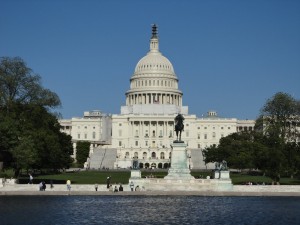
Consider the following progression of statements:
- America is fortunate.
The United States has benefited greatly over time from a wealth of natural resources and a strong work ethic. To the extent that this statement describes America’s fortunate economic circumstances relative to much of the world, I agree.
- God blessed America.
The shift from America’s positive circumstances to God’s active intervention is where I begin to take issue. If America’s past economic success is the result of divine providence, then why does God not intervene in other countries?
- God blessed America because XYZ.
To answer the question “Why the US and not other countries?” some would point to our history and values. According to this narrative, the US was founded as an escape from religious persecution and prospered due to its reliance on God and Christian values. Other archetypical American values such as liberty, equality, freedom, and justice may also be invoked at this stage. But if God blessed America and it has a special role to play on the global stage, why does America experience difficulties, like the recent recession?
- Because we’ve turned from XYZ, things are going downhill for America.
To explain negative occurrences in the present, proponents of this religion-infused view of American exceptionalism will typically point to social or political actions that, in their view, violate God’s reason for blessing the United States in the first place.
For example, Oklahoma state representative Sally Kern in July 2009 released an “Oklahoma Citizens Proclamation for Morality.” Beginning with a list of quotes by Founding Fathers correlating America’s success and Christianity (see #3 above), it then explains the economic crisis: “we believe our economic woes are consequences of our greater national moral crisis.” This crisis is evidenced by the United States becoming “a world leader in promoting abortion, pornography, same sex marriage, sex trafficking, divorce, illegitimate births, child abuse, and many other forms of debauchery.”
- Therefore, we should return to XYZ.
As this progression attributes downturns to an abandonment of foundational values, the clear solution is to return to these values.
In Kern’s proclamation, this is the case. One of the examples is “BE IT RESOLVED that we… solemnly declare that the HOPE of the great State of Oklahoma and of these United States, rests upon the Principles of Religion and Morality as put forth in the HOLY BIBLE” [capitalization in original].
Does this progression sound familiar? Perhaps it should, because it seems to parallel a recurring narrative in the Old Testament. A nation is uniquely blessed, enjoying God’s particular favor. The people, however, turn away from God, engaging in actions displeasing to Him. Things take a turn for the worse. The people then turn from their evil ways and return to God.
I find this narrative that so closely links the United States’ morality, politics, and economic circumstances in a manner that evokes the nation of Israel in Judges disturbing. I agree that the US has been fortunate, and I am not against the verbiage “blessed” per se, but I do reject any implication that the US has been specially favored by God over other nations.
If we are not uniquely blessed though, does the United States have any special responsibility toward others given our economic position relative to many other countries?
Yes.
While I would not argue solely on religious terms, I do think that we have a humanitarian responsibility to aid others. When our country has “more TVs per home than people” (according to The Nielsen Company), we should do something to help the almost one billion people who lack clean water (according to the BBC).
Perhaps as Christians we should not dwell on the question “Who or what messed up our economy and how do we fix it?” but rather “Given our continued material wealth relative to most of the world, how can we help others?”